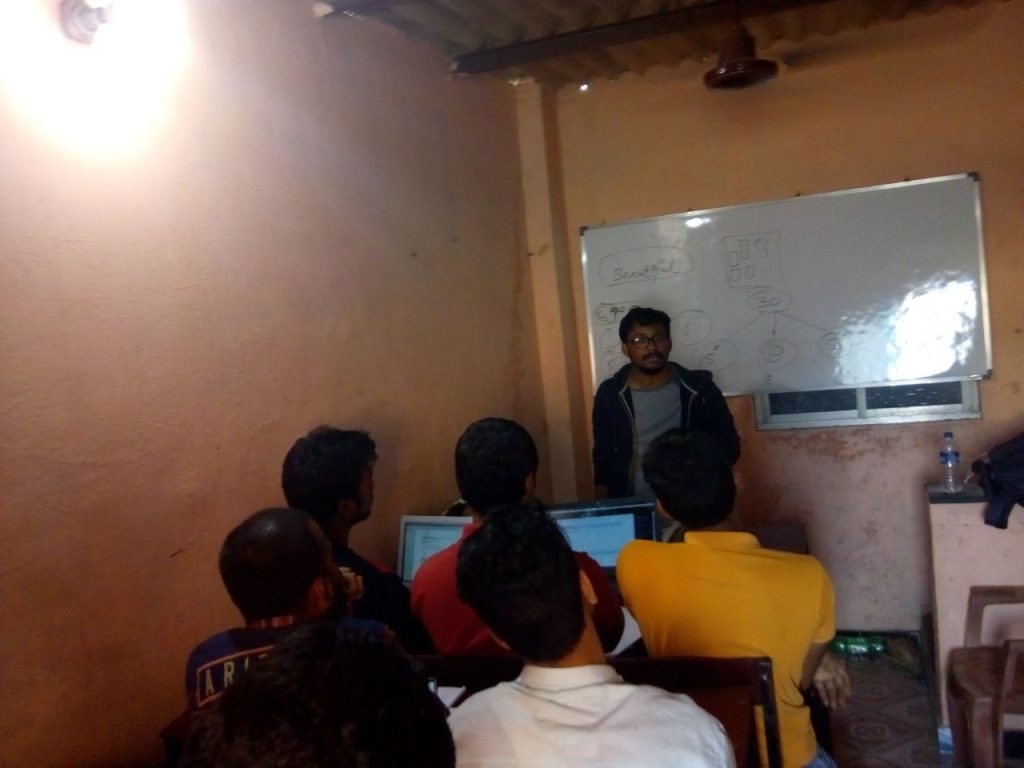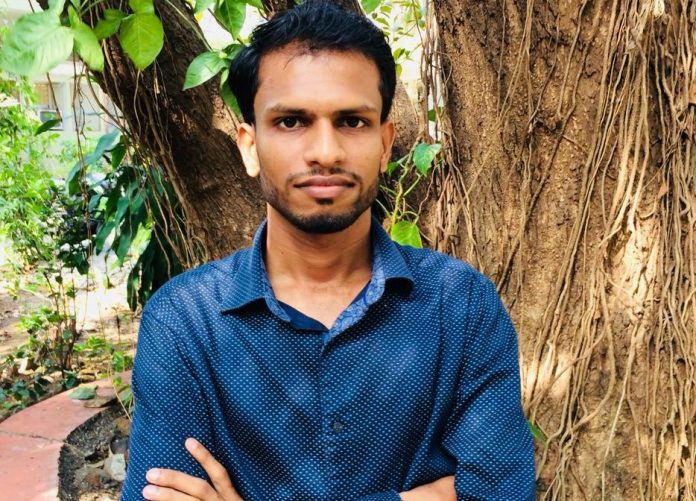By Daisy Katta, TwoCircles.net
In a small room located on the first floor of a tiny two-storey house in the migrant colony of Baiganwadi area of Govandi, Mumbai, youngsters assemble every morning. Raju Chalwadi, their teacher, is the first one to arrive. Raju teaches and trains students to prepare for higher education institutes like TISS and IIT, among others, all at no cost. Most of the students who attend these classes belong mostly to the migrant communities staying in Shivaji Nagar of Mumbai, many of whom are also first generation learners, from daily wage earning families. Raju teaches them General Knowledge, English, Maths etc, which is required to crack most of the entrance tests in any higher education institute
Raju grew up in Shivaji Nagar, Govandi in the eastern part of Mumbai. This was a makeshift settlement for largely displaced migrant workers belonging to the Dalit, Bahujan and Muslim communities. Located at the edge of the Mumbai city, Shivaji Nagar had little to offer in terms of education other than few municipal schools and low-income private schools. Raju realized that there is a huge deprivation of higher education opportunities for students in the area.

Raju decided to start this teaching initiative after struggling to attain his own education and facing personal hurdles. At one point in time, Raju worked at a dry ice manufacturing company in Marol for a salary of RS 3,000 per month. Today, Raju who is 25 years old, is pursuing his PhD in Sociology from IIT Bombay.
At a time where there is increasing privatisation in the education sector, where many courses even in public institutes are charging more than 1 Lac per semester, more and more students from marginalised communities are getting left out. Apart from fees, there is also a kind of ‘filtration’ process that happens during entrance tests itself, most of which are conducted in English. Many of these students are left to take up vocational training and other courses, which leaves them with very few job opportunities. Already with dwindling numbers of representation of SC ST and OBC students and lackadaisical attitude of the current government, which has brought in huge fund cuts in the education sector, the condition is only turning from bad to worse.
Raju says, “Starting this initiative was not an easy task, I visited all the colleges in the vicinity of Govandi and Chembur in 2017 and organised seminars. I also met a few local leaders, but nothing helped in approaching students”. Finally, after months, he found around six students who were willing try for post-graduation, Raju further adds that “Lot of families were reluctant to send girls students for the classes They were worried about their safety, and many were under huge family pressure for marriage. I had a difficult time convincing them, but at least two girls persisted”. Nonetheless, Raju kept up with his initiative and took up a makeshift room on a rent of Rs 2,000 per month, and converted it into a small classroom and started his initiative with six students. He firstly assessed what were the students’ particular interest areas, then guided them and tell them about various courses, they could apply for. Further, he also helped them filling exam forms for various courses, gave them exam preparation books, newspapers etc.
This journey even for Raju’s family has not been easy. In the mid-80s, Raju’s father migrated from Kurdi, Raichur District in Karnataka to Mumbai to escape deadly famine. Like many other migrants in the 70s, he started working at the factories and hotels as a helper in Mumbai. His mother also came from a migrant family in Karnataka. While working as an autorickshaw driver, his father would everyday drop students at nearby TISS. Out of curiosity, one day his father inquired with his young passenger about TISS. “Thinking that its some big company, my father sent to me there to look for a job but it turned out to be a University, and I came back home with a brochure with a list of courses”.
This was a turning point for Raju. He further adds, “I would visit cyber cafes to learn about the education background of people who I would see on TV, I noticed that most of them had studied Economics”. His father would also constantly remind him to read newspapers to keep updated. Raju simultaneously cracked IGIDR and later TISS from where he finally did his postgraduate in Development Studies.
Although having a college degree was not enough. Raju recalls, “There was a phase when I have faced severe casteist abuse in my own neighbourhood, up to an extent that I had no hope left”. So, one day Raju decided to read works of Phule, Ambedkar, Periyar and Tarabai Shinde. Reading about their experience of casteism help him realise that he needs to be confident and think ahead. Raju further adds, “Ours is a caste stratified society, any of Dalit Bahujan students are made to internalize that they are not meant to study ahead”.
Raju says that there is a huge drop out of students from Bahujan communities after their higher secondary education and their Bachelors in Mumbai. He attributes this to the lack of information and guidance available for students for higher education, the pressure to start earning quickly and availability of jobs requiring lesser skills like BPO and call centres. He has seen many youngsters leave education midway to join call centres which offer decent pay, but where there is no career growth or opportunity for further learning. His coaching classes are also a means to break this tendency and provide the youngsters in Govandi with motivation for higher education and skills to crack their entrance exams. Raju, through opening up opportunities for the youngsters for higher education in different cities, makes sure that their aspirations are not limited to Mumbai.
It’s been a year that he is running his teaching initiative, and four out of six of his students are currently waiting for their final results from IIT, TISS and Azim Premji University. Hopefully, if his students make it, they will bring in a few first-generation learners into higher education spaces.
Nonetheless, even while facing huge hurdles on a personal front, Raju is confident and hopes that he can mobilise more students and encourage them to apply for graduation and post-graduation courses next year.


